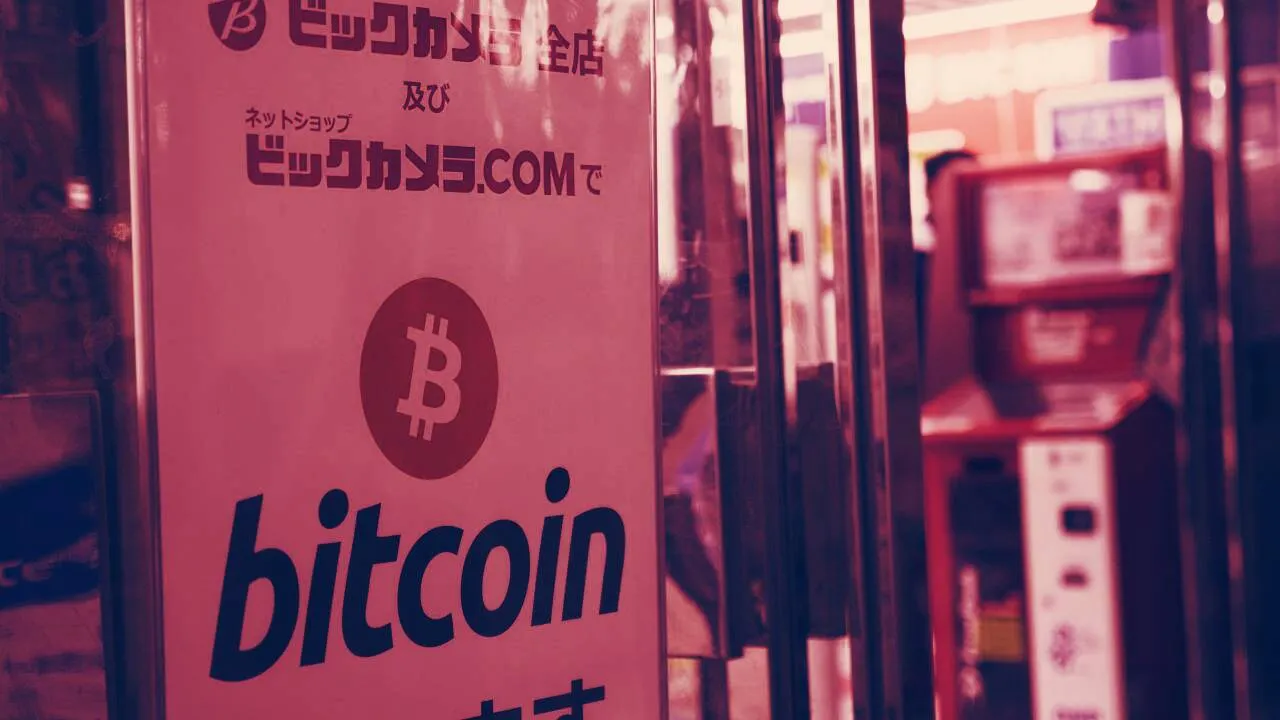In brief
- Japan's finance minister Taro Aso has called for cooperation between the country's blockchain community and regulators.
- Aso sees benefits in using blockchain for applications including finance, IDs and combatting COVID-19.
- The incoming head of Japan's Financial Services Agency (FSA) has previously argued that the country should focus on CBDCs rather than on cryptocurrencies.
Japan's stance on blockchain regulation appears to be softening. Last week, the country's deputy prime minister, Taro Aso, called for greater cooperation between regulators and the country’s blockchain community to improve governance, despite friction between the two.
“In the blockchain community, some people may still look at regulators with a sort of hostility," said Aso, who is also Japan’s finance minister, during the Blockchain Global Governance Conference in Tokyo. "It may stem from the assumption that the regulators lack technological understanding and thus could hinder innovation.”
Opening Remarks by Taro Aso, Deputy Prime Minister, Minister of Finance and Minister in Charge of Finance at the Blockchain Global Governance Conference (BG2C) in Tokyohttps://t.co/IceFDpGULj
— JFSA (@JFSA_en) August 26, 2020
He added that, “What is needed is for all of us to get together and work together to design the proper use of technology under better governance.”
Aso also noted that blockchain could have an important role to play in trade finance, creating a more sophisticated digital identity system and also the COVID-19 crisis.
“In the current fight against the widespread epidemic, blockchain could provide a resilient solution to contact-tracking with a high level of privacy protection. It will certainly enhance our ability to prevent and mitigate future risks.”
Asia's shift towards CBDCs
Aso's comments don't reflect a universally positive view of blockchain and cryptocurrency among the country's regulators.
Earlier last month, the incoming head of Japan's Financial Services Agency (FSA), Commissioner Ryozo Himino, argued that deregulation of digital assets may not help technical innovation, and that the country should focus on central bank digital currencies (CBDCs) rather than on cryptocurrencies like Bitcoin.
“In the end, Japan must think really hard about whether to issue CBDCs because there are merits and demerits to doing so. What it can do now is to be ready so that when Japan decides to issue CBDCs, it can do so straight away,” he said.
China’s development of its digital currency electronic payment (DCEP) electronic renminbi has shifted Japanese regulators’ attention to the creation of its own central bank digital currency (CBDC), the electronic yen.
In January, Aso said it would be a “very serious problem” if China’s DCEP gains traction as a means for international settlement, since Japan's transactions are mostly settled in dollars.
The coronavirus pandemic also has a role to play in boosting interest around a digital yen, as cashless payments could help curb the spread of the virus. In July, the Japanese government urged the Bank of Japan (BOJ) to look closer into developing the currency.
“The BOJ will coordinate with other countries to consider CBDCs by examining and verifying technological tests,” according to the country’s annual policy roadmap.
Despite news of Japan’s prime minister Shinzo Abe’s resignation, Aso’s role in the country's future financial plans could continue to affect blockchain and related industries. Aso told local news agency Kyodo that he does not plan to join the race to succeed Abe.
Japan’s troubled history with crypto
Japan's shift toward greater regulation and growing interest in underlying digital ledger technology follows a number of cryptocurrency scandals in the country, including the collapse of Bitcoin exchange Mt. Gox, which saw 740,000 Bitcoin (currently worth $8.6 billion) stolen from users.
More recently, the Tokyo District Court announced the future confiscation of a portion of cryptocurrency assets which were allegedly stolen during a 2018 attack on Tokyo-based exchange Coincheck Inc.
In what is believed to be the first case of crypto seizure in Japan, about 4.8 million yen (US$45,000) in both XEM and Bitcoin will be confiscated. Coincheck was hacked once again in May this year, but resulted in no stolen crypto.
This story was produced in collaboration with our friends at Forkast, a content platform focused on emerging technology at the intersection of business, economy, and politics, from Asia to the world.

